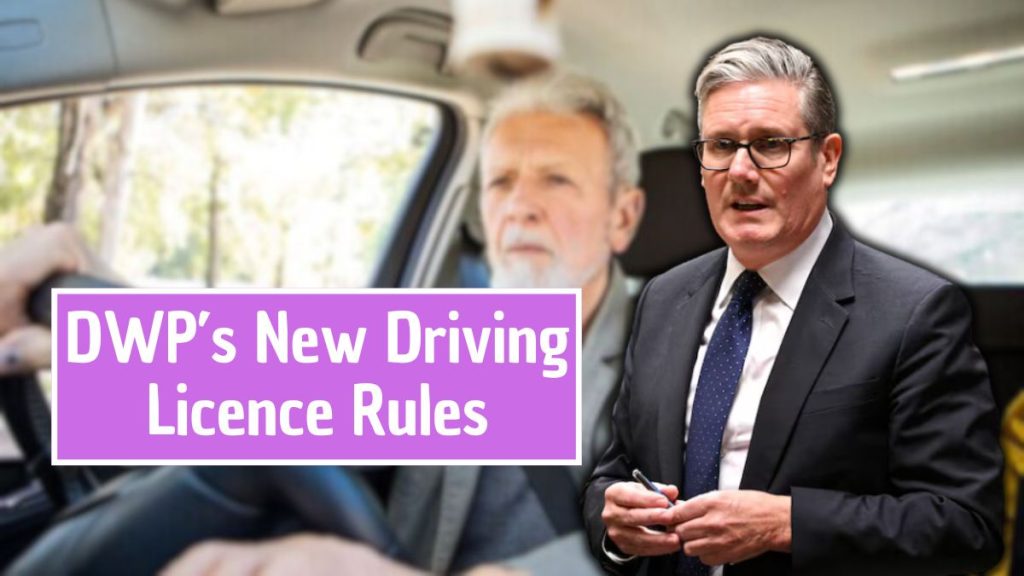The UK government has announced major reforms to the Personal Independence Payment (PIP) system, set to begin in 2025. The update, confirmed by Prime Minister Keir Starmer, will affect hundreds of thousands of disability benefit claimants. While the reforms aim to simplify assessments and reduce bureaucracy, around 700,000 people with long-term or complex medical conditions will be exempt from some of the new rules.
This announcement has drawn widespread attention, raising questions about who qualifies, how the system will change, and what claimants must do to prepare.
Why the UK Government is Reforming PIP

The PIP system, introduced to support people with long-term disabilities and health conditions, has faced criticism for being overly complex and burdensome. Repeated assessments, delays, and administrative errors have left many vulnerable claimants struggling.
The 2025 reforms aim to:
- Simplify the process.
- Speed up decision-making.
- Reduce unnecessary reassessments.
- Make the benefit more responsive to both physical and mental health needs.
Streamlined Assessment Process
Under the new rules, PIP assessments will be streamlined. Instead of rigid categories, assessments will consider:
- A person’s overall functional ability.
- Both physical and mental health conditions.
- Medical evidence submitted digitally to reduce paperwork.
Claimants will also benefit from faster decisions and reduced stress, as digital submissions and technology-backed processes replace outdated paper systems.
Who Qualifies for Exemption From the New Rules
Prime Minister Starmer confirmed that around 700,000 claimants will not be required to undergo the new assessment system.
Exemptions apply to individuals with:
- Severe, long-term disabilities.
- Progressive conditions (such as motor neurone disease or advanced multiple sclerosis).
- Complex neurological disorders.
- Multiple chronic conditions requiring continuous care.
By exempting these groups, the government ensures that people with ongoing and permanent needs will not face repeated reassessments.
Reassurance for Families and Advocacy Groups
Disability rights groups and healthcare professionals have welcomed the announcement. Many argue the exemptions will give peace of mind to families and reduce unnecessary anxiety.
Clear criteria will help cut confusion and ensure support continues uninterrupted for those most vulnerable.
What the Reforms Mean for Other Claimants
Not everyone will be exempt. For working-age claimants and pensioners not on the exemption list, the new system will still apply.
Key changes include:
- A stronger focus on what claimants can do, rather than their medical diagnosis alone.
- More use of functional ability assessments.
- Quicker access to decisions due to digital platforms.
Impact on Pensioners and Older Adults
The reforms are not just for working-age people. Pensioners receiving PIP will also see improvements, including:
- Faster processing of claims.
- Fewer administrative mistakes.
- Clearer communication from the Department for Work and Pensions (DWP).
These changes are designed to make the process less stressful for older adults relying on disability benefits.
Preparing for the 2025 Changes
Claimants not covered by the exemptions are advised to prepare now:
- Update medical documentation – Ensure recent reports from doctors or specialists are available.
- Learn digital tools – Online portals will be crucial for submitting evidence.
- Seek advice – Disability support organisations can help with applications.
- Understand functional descriptors – Knowing how the assessment measures daily living and mobility can help claimants present their case effectively.
Government Position on the Reforms
Prime Minister Starmer has stressed that the reforms are about fairness and efficiency.
- “No one with genuine need should be left behind,” he said.
- The government believes the system must strike a balance between protecting vulnerable people and preventing misuse.
Public and Advocacy Response
- Positive reception: Advocacy groups welcome the exemptions and faster processes.
- Concerns remain: Critics worry about those not exempt, fearing stricter evaluations could create barriers.
- Government assurances: Officials insist all genuine claimants will still have access to PIP support.
FAQs About PIP Reforms 2025
Q1. Who will be exempt from the new PIP rules in 2025?
Around 700,000 people with severe, long-term, or progressive disabilities and complex medical conditions will be exempt.
Q2. How will the assessment process change?
The new system will focus more on functional ability and less on rigid categories. Claimants will submit medical evidence digitally, reducing delays.
Q3. Do pensioners also benefit from the reforms?
Yes. Pensioners on PIP will see faster claims, reduced errors, and clearer communication from the DWP.
Q4. When will the changes take effect?
The new rules begin in 2025, with exemptions applying immediately once the reforms are active.
Q5. How should claimants prepare?
Keep medical documents up to date, learn to use digital portals, and seek advice from disability organisations to ensure smooth processing.













